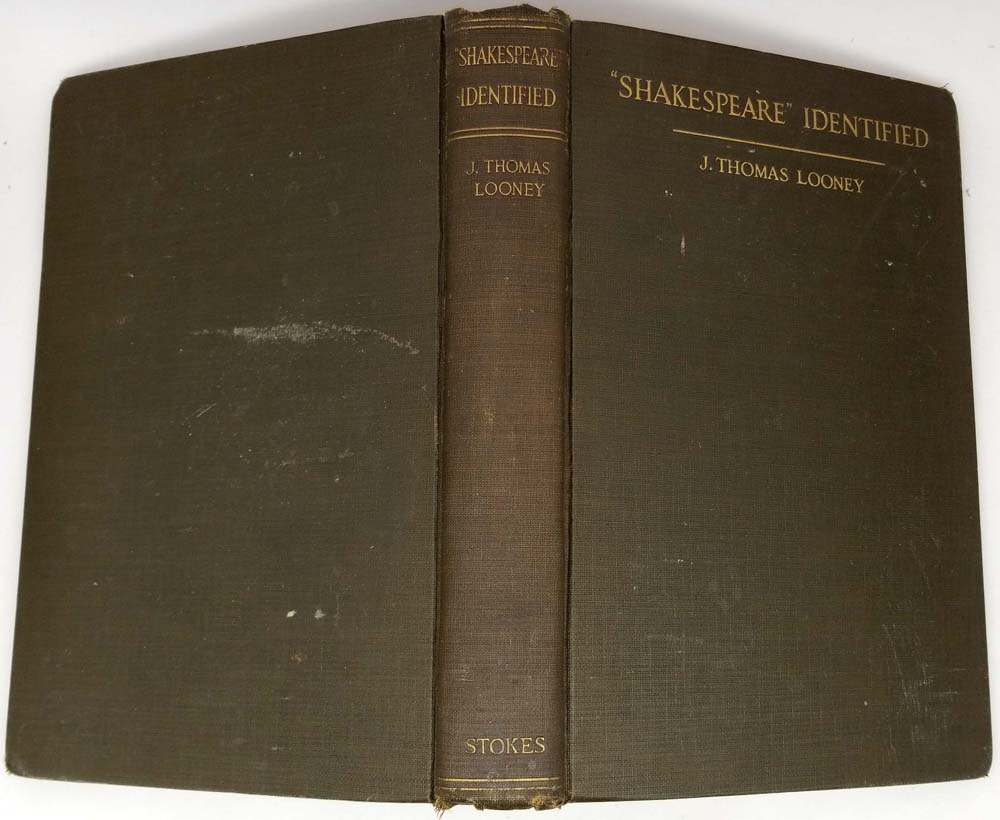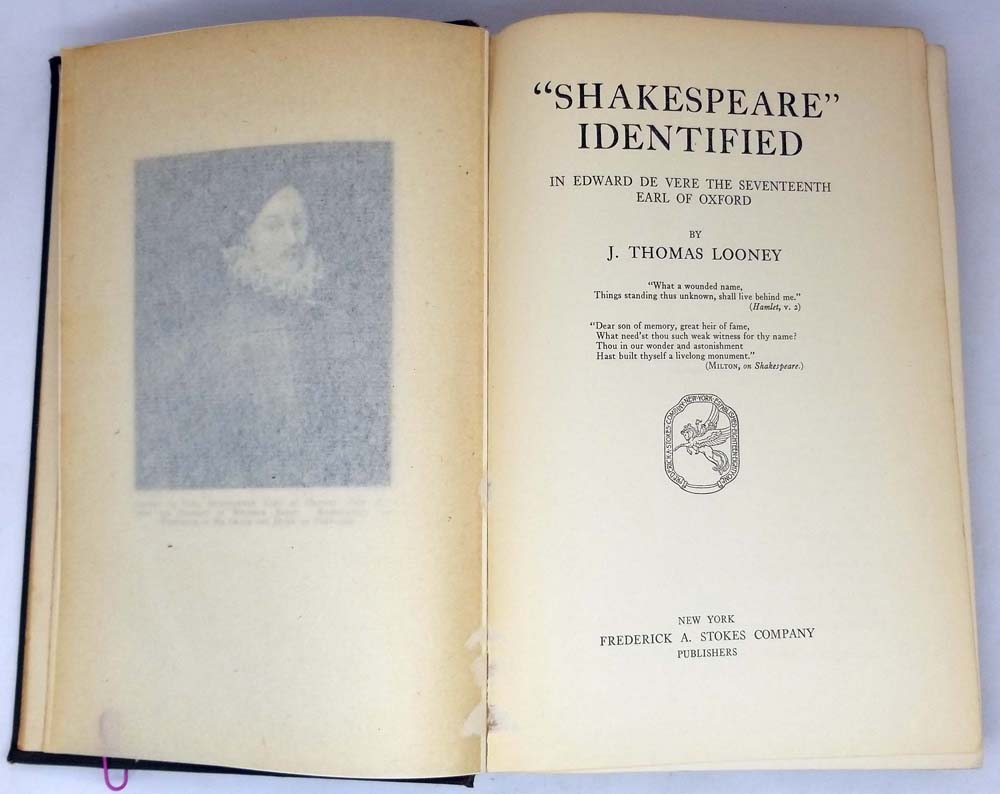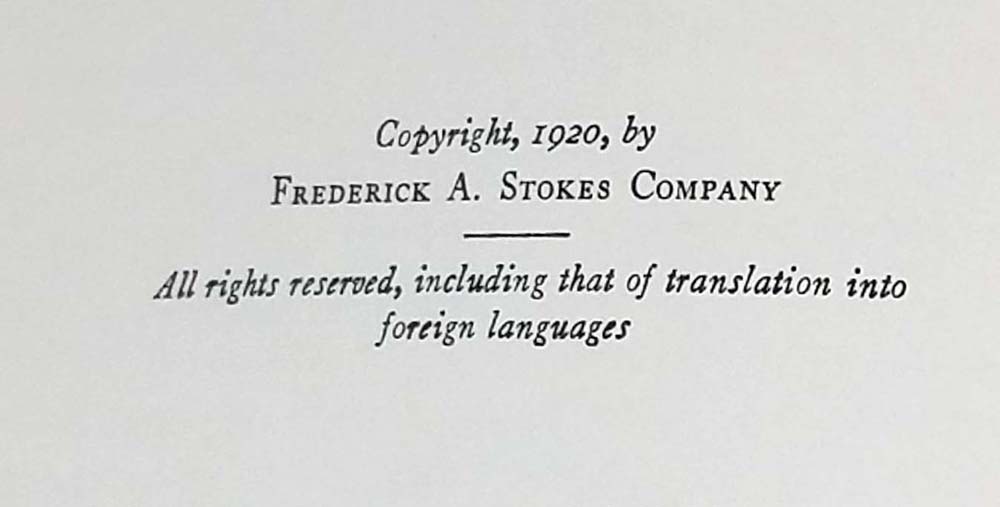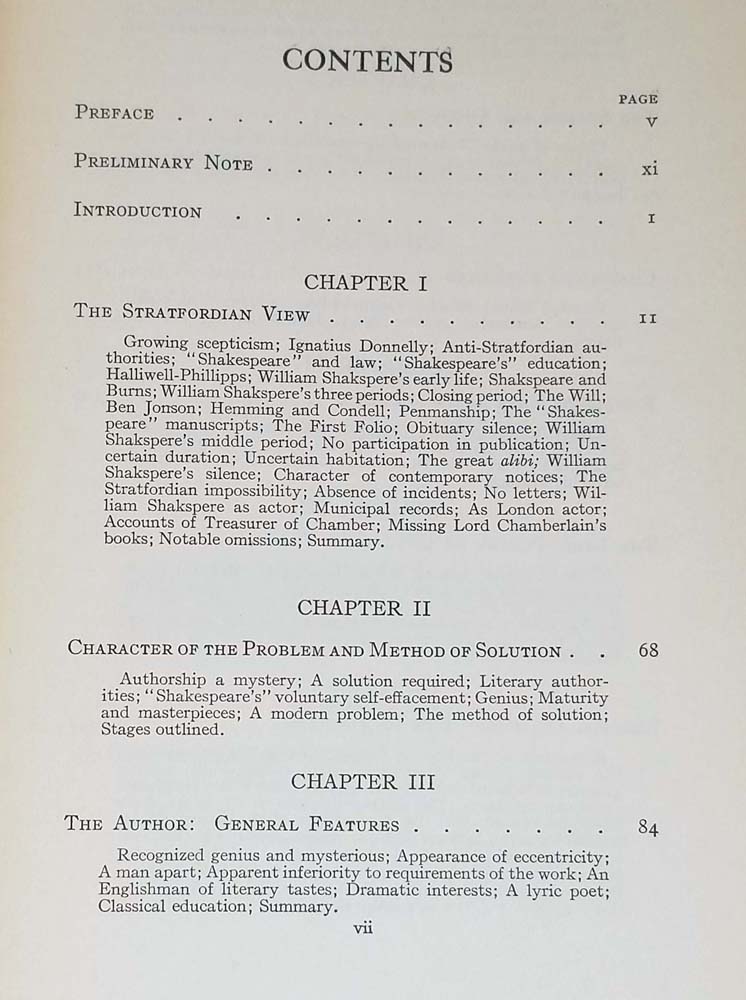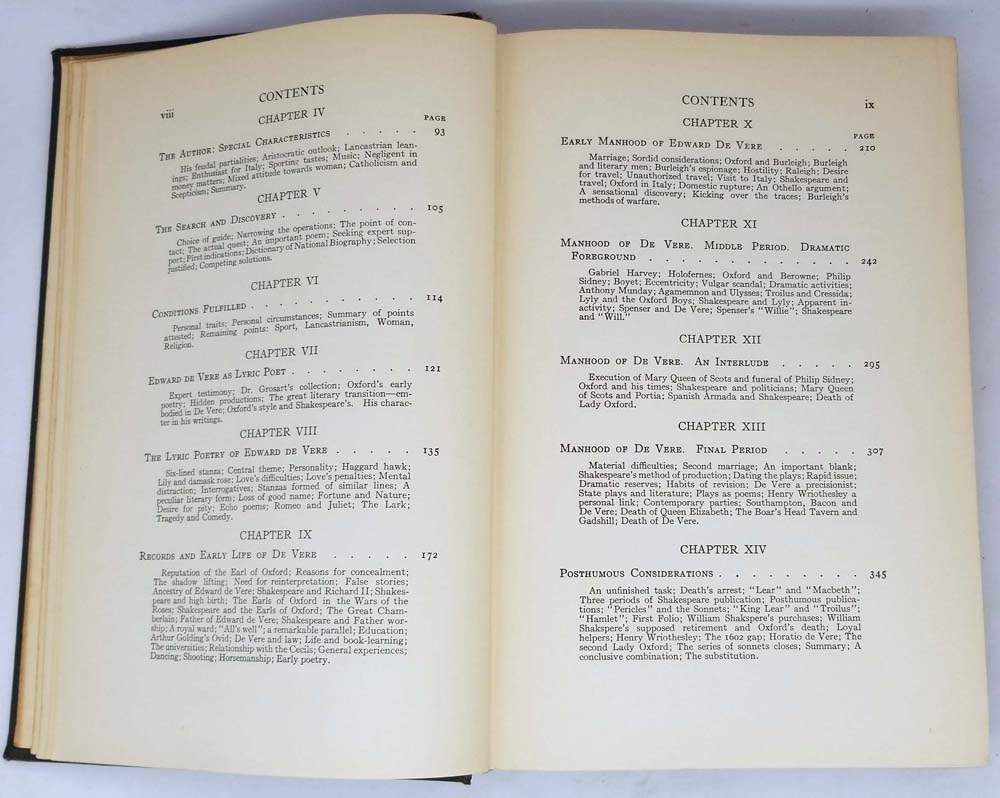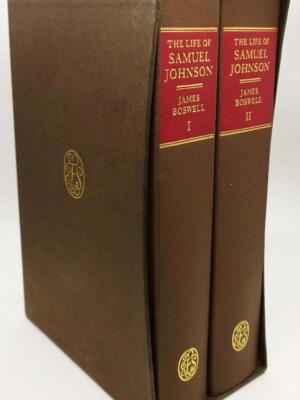Shakespeare Identified (1920) by J. Thomas Looney is a controversial but influential work of literary detective fiction that proposes an alternative authorship theory for the plays and sonnets traditionally attributed to William Shakespeare of Stratford-upon-Avon. Looney, an English schoolteacher, argues that Edward de Vere, the 17th Earl of Oxford, was the true author behind the “Shakespeare” pseudonym—a theory now central to the Oxfordian movement of Shakespearean authorship studies.
Combining textual analysis, historical records, and psychological profiling, Looney claims that de Vere’s aristocratic upbringing, education, and documented literary interests align more closely with the plays’ insider knowledge of court politics, foreign settings, and classical references than the Stratford man’s biography. He dissects parallels between de Vere’s life and works like Hamlet (framed as a veiled autobiography) and The Merchant of Venice (linked to the Earl’s financial disputes).
While mainstream scholarship largely rejects Looney’s thesis, his book remains a cornerstone of anti-Stratfordian arguments, inspiring later works like The Mysterious William Shakespeare (1984) and even debates among Supreme Court justices. Whether read as conspiracy or compelling revisionism, Shakespeare Identified challenges readers to reconsider the nexus of art, identity, and history.

